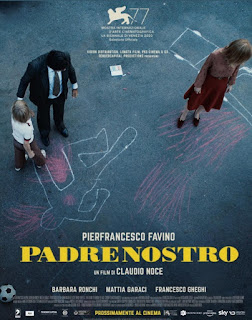Part of my coverage of the 56th Chicago International Film Festival.
CARELESS CRIME ***
IDEA: In contemporary Iran, a cadre of four disaffected men plot to burn down a movie theater, closely echoing a real act of domestic terrorism that occurred shortly before the Iranian Revolution in 1978.
BLURB: One could easily exhaust the box of movie metaphors in describing the narrative structure and overall effect of Careless Crime. Mokri’s film is a palimpsest of Iranian history; a series of mise-en-abymes enclosed in a set of nesting dolls; a Möbius strip, in which reality, representation, past, and present feed imperceptibly back into one another without origin or endpoint. Indeed, Careless Crime is a work of byzantine construction that invites these and a dozen other associations; crammed with sociopolitical allusions and a veritable pile-on of meta-cinematic devices, it’s as audacious as it is frequently abstruse in meaning and message. Sometimes, Mokri’s formalist tomfoolery - rewound scenes, recursive visuals and dialog, films-within-films-within-films - can feel indulgently overwrought, obfuscating whatever it is he’s trying to communicate. At other times, or even at the same time, his approach is captivating in its dizzying, movie-drunk play, effectively suggesting the reality-torquing power that film has over our perceptions. The cinema, as location and medium, is both the real-world and diegetic catalyst of Careless Crime, an entity so historically and psychically significant it becomes figured as a primal scene of the Iranian Revolution, and, by extension, of contemporary Iranian art and politics. By creating a feedback loop where the original scene of the “crime” is replicated in the present, and where people and their actions become temporally displaced in and around movie screenings, Mokri evokes a sense of eternal return, with the cinema as fulcrum. Who knows if the profusion of narrative and thematic strata all fully cohere; even if they don’t, Careless Crime has enough ideas to fill an auditorium.





